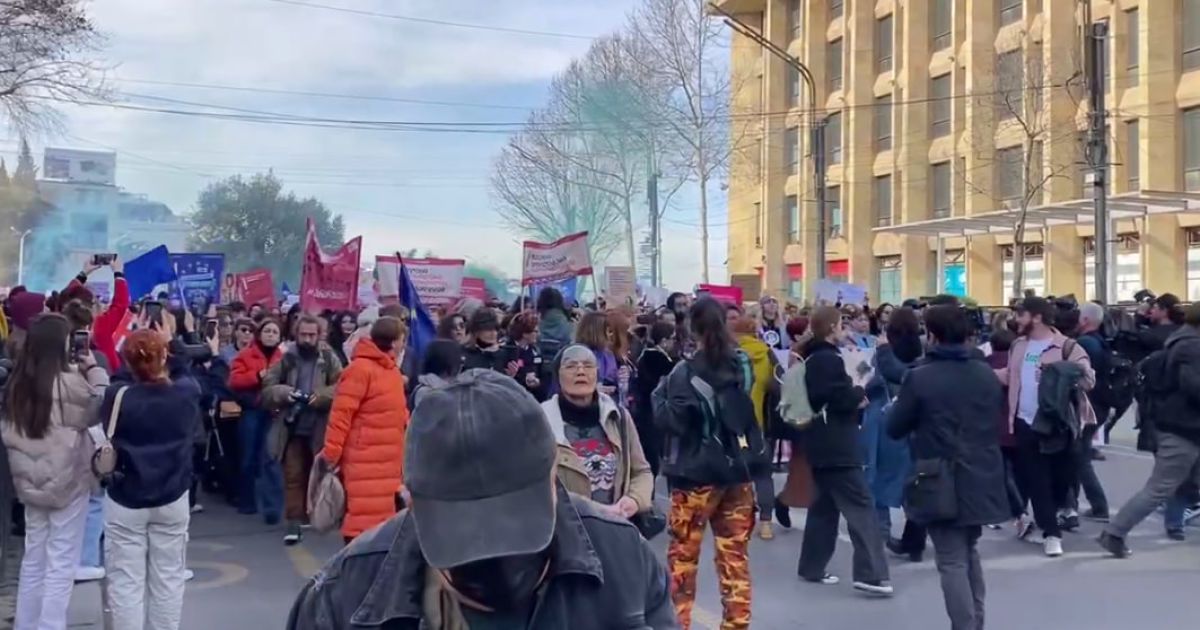In Tbilisi, there are no protests for the second day because of the Russian draft law on "foreign agents".
After noon on March 8, people began to gather actively for new rallies.
This is reported by local media and published videos of the protests.
The footage shows how thousands of Georgians gathered for the protests, holding placards with calls to cancel the draft law on "foreign agents" passed in the first reading, and to resign the pro-Russian government, and also carry the flags of their country, the USA and the EU.
The participants of the action again went to the parliament building with shouts of No Russian Law.
We will remind, on March 7, Georgia was shaken by rallies against the so-called "law on foreign agents", which is called pro-Russian and aimed against the country's European integration.
During the action, protesters clashed with the police.
Law enforcement officers used water cannons, stun grenades and tear gas.
In response, the protesters threw "Molotov cocktails".
The Ministry of Foreign Affairs of Georgia reported that at least 66 protesters were detained.
What preceded large-scale protests in Georgia
The reason for the protests was the draft law on "foreign agents" adopted by the Georgian parliament, which copies a similar Russian law.
It foresees that mass media and non-governmental organizations that receive funding from abroad will be given the status of "foreign agents".
In fact, the initiative is aimed at limiting the activities of human rights defenders and the opposition press.
During its consideration, more than one fight of deputies took place.
Prime Minister of Georgia
Irakli Garibashvili
spoke in support of the law on foreign agents, and the President of Georgia - against it.
The European Union stated that the document contradicts the conditions for acquiring EU membership.
The US Embassy in Georgia called the adoption of this bill "a black day for Georgian democracy."
Read also:
The US reacted to the protests in Georgia: it supports the right to peaceful assembly
The European Parliament called on Georgia to pardon Saakashvili, and the European Council on sanctions against Ivanishvili
Georgia has extended the visa-free period of stay for Ukrainians: details
